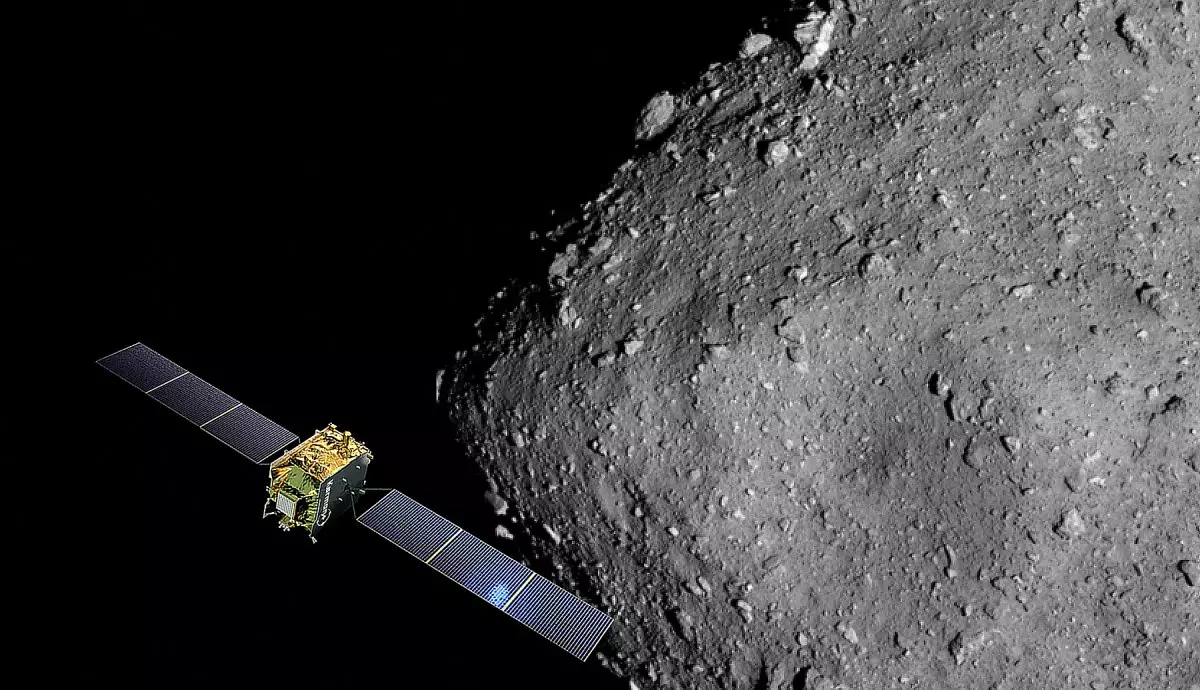The realm of space exploration has witnessed unprecedented advancements in recent years, increasingly capturing the attention of investors and entrepreneurs alike. Among these ambitious ventures is Karman+, a startup focused on the intriguing concept of asteroid mining. Recently securing $20 million in seed funding, Karman+ has set its sights on developing autonomous spacecraft capable of venturing millions of miles into space to harvest resources from asteroids. Such bold aspirations reflect a burgeoning excitement about both the possibilities of space technology and the untapped wealth that the final frontier may hold.
The company aims not only to explore but to create a sustainable framework for resource extraction in space. The initial goal is to build a spacecraft that extracts water from asteroids’ regolith, thereby enabling further space operations—such as refueling satellite systems in orbit—without the prohibitive costs associated with launching all resources from Earth. However, the larger vision encompasses creating an ongoing supply chain for rare metals and materials, potentially establishing a new manufacturing ecosystem beyond our planet. For many, this concept evokes thoughts of science fiction, but the Karman+ team believes that strategic technology advancements make these dreams palpable.
Karman+ posits that it can dramatically reduce operational costs, aiming to conduct missions within the realm of $10 million—a mere fraction compared to previous missions that surpassed $1 billion. As they progress, the company envisions a market ripe for exploration, one that may be worth several billion dollars annually mainly due to the cyclical demand for resources. However, transforming high-level theoretical models into actionable plans presents daunting challenges.
A pivotal aspect of Karman+’s strategy is leveraging off-the-shelf components to construct their spacecraft, which could mitigate the traditionally exorbitant expenses of space travel. Yet, many challenges loom large, including the assumption that asteroid mining will transfer seamless practicality from Earth-based operations to the more unpredictable conditions of space. Asteroids are not only moving entities but also represent a hostile environment requiring innovative engineering solutions that are yet to be fully developed.
The tech world has long observed a trend where funding flows abundantly towards established sectors, while innovative, uncharted fields experience droughts. Karman+ has found early financial backing from key investors, including London-based Plural and Antwerp’s Hummingbird. Such support indicates a belief in both the viability of their mission and the potential returns associated with asteroid mining—something that the co-founders articulated as an ‘under-invested’ opportunity.
The journey to secure additional funds is still essential for Karman+’s future, particularly as it inches closer to an ambitious launch plan slated for 2027. Before then, the company must not only refine their spacecraft design but also attract further investment to support extensive testing and validation of their technology. Currently, the founders approach both project parameters and investor expectations with a sense of realism, allowing for a balanced assessment of potential obstacles as they navigate this intricate journey.
Critical Challenges and Considerations
Despite the enthusiasm surrounding Karman+, the myriad obstacles cannot be overlooked. The company’s spacecraft remains in development, and actual testing has yet to confirm its capability. Moreover, only a limited number of successful missions have probed asteroids, making it a daunting feat given the previously vast sums dedicated to such endeavors. Additionally, asteroids’ variable orbits and distances from Earth complicate the logistics of timely extraction while also introducing risks that could hinder any potential mission.
Another fundamental issue arises concerning the type of satellites that Karman+ aims to service. While the idea of refueling aging satellites based on extracted resources is appealing, not all satellite systems rely solely on hydrogen and oxygen propellants. This could limit the applicability of Karman+’s plan. Furthermore, alternative strategies for satellite maintenance and refueling abound, indicating that while asteroid mining holds promise, it cannot singularly address the broader challenges facing satellite technologies.
Investor sentiment tends to oscillate between fervor and skepticism, and in the case of Karman+, both elements exist simultaneously. Investors like Sten Tamkivi, a partner at Plural, expressed both excitement and caution regarding the venture’s aspirations. This dual approach could foster a disciplined path forward, tempered by realistic expectations.
While the broader tech ecosystem often experiences a ‘YOLO’ mentality—characterized by a rush towards promised innovation without thorough groundwork—Karman+ embraces detailed planning. This reaction against the software-driven approach reflects a growing acknowledgment of the complexity and significance of space endeavors. Whether Karman+ can navigate the intricate layers of engineering, funding, and operational logistics remains an open question. However, their commitment to pushing the boundaries of current knowledge could pave the way for a new era in space exploration and resource utilization.

